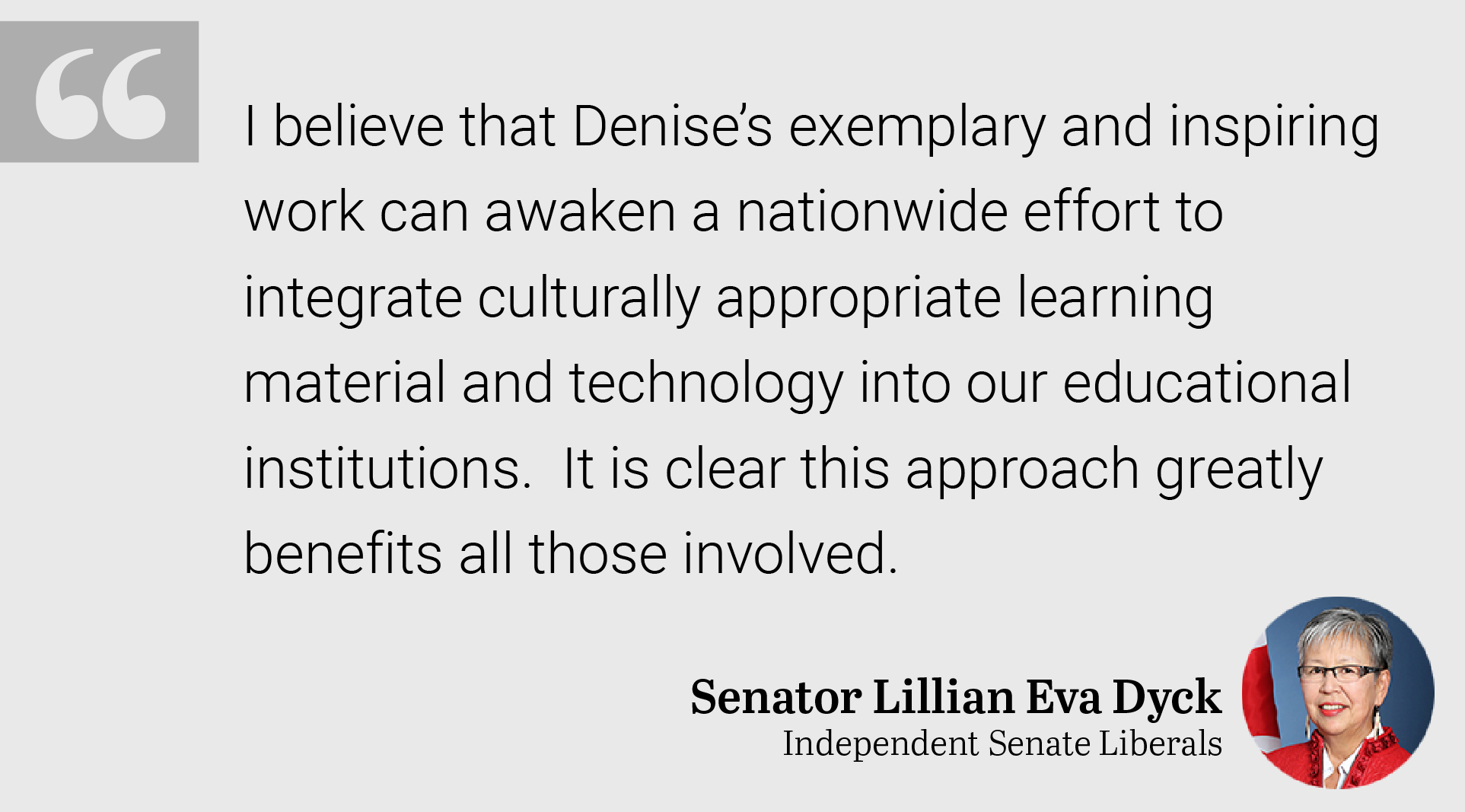Perspectives — May 22-24, 2018

Last week in the Senate: The Transportation Modernization Act, the Trans Mountain Pipeline, sexual harassment and Cree language education.

Government
Last November, Bill C-49, a wide-ranging law, which includes improved locomotive safety, marine shipping and provisions for airline passenger rights, among other measures, arrived in the Senate.
After five months of review, the Senate sent the bill back to the House of Commons with 18 amendments. The House accepted six of these amendments, and rejected the rest. Then the Senate sent the bill back yet again, insisting that the House accept two amendments that it had previously refused.
This back-and-forth frustrated some Canadians, many of them Western Canadian grain farmers. Ultimately, C-49 passed when the Senate agreed to accept the elected chamber’s steadfast position on the two rejected amendments.
The final legislation now includes key Senate changes that will address issues of limited competition in the rail sector and add soybeans to the list of products benefitting from the Maximum Revenue Entitlement.
Did the review of C-49 take longer than expected? Perhaps. But most agree that the improved, amended legislation was worth waiting for.
These amendments to C-49 might never have come to pass had it not been for the emergence of an increasingly independent Senate, created by the government’s appointment of only independent senators as well as the government’s openness to Senate suggestions and amendments.
The ongoing evolution of the Senate is a good thing for the regions, for minorities, for the under-represented and for many other groups in Canadian society who share the belief in having a Senate that is less partisan, more independent, accountable and transparent.

Opposition
On Tuesday, May 22, senators from across party lines voted to adopt Bill S-245, the Trans Mountain Pipeline Project Act. The purpose of this bill is to ensure that the pipeline project and any initiatives related to it are not frustrated or delayed. It also declares the project to be for the general advantage of Canada.
The bill passed in the Senate, with senators declaring the Trans Mountain pipeline expansion to be in the national interest, by a vote of 54 to 15, with 6 senators choosing to abstain from the vote.
This is an excellent initiative brought forward by Independent Senator Doug Black and seconded by Conservative Senator Richard Neufeld.
The Trans Mountain Pipeline Project is crucial to protect the best interest of Canadian oil. Currently, Canada, in particular the province of Alberta, is losing millions of dollars every day because Canadian oil is being sold at a discounted rate. Approving the TMX would not only provide more revenues to governments, but will also create tens of thousands of jobs.
Kinder Morgan has also received the expressed consent of First Nations where the pipeline will actually cross reserve land.
It is now up to the House of Commons to pass the bill before the May 31 deadline. Senators are hopeful that the Members in the Other Place will vote in favour of passing this important piece of legislation. Canadians should no longer be denied all of the benefits of opening up Alberta oil to reach other markets.

Senate Liberals
Last week in the Senate I recognized and congratulated Denise Desjardins, an elementary schoolteacher from Mistawasis First Nation in Saskatchewan, who recently won a Prime Minister’s Award for Teaching Excellence in Science, Technology, Engineering and Mathematics (STEM).
Over the past year, Denise has incorporated Cree language and culture into her use of technology in the classroom, and the results have been tremendous. The grade 1 and 2 students she teaches have become fully engaged, and their reading skills have improved. One student’s marks jumped from 47 per cent to 90 per cent.
The idea to combine Cree language and culture into her classroom technology arose from her observation that her students’ faces lit up when seeing photos of themselves in a story with Cree words.
Serendipitously, the school had also just begun a pilot project using one-to-one tablet learning. Denise adapted apps to include First Nations content to allow the students to do such things as send video messages to their parents in Cree and, using augmented reality, impose a picture, for example, of an eagle, and the Cree translation of the word, “kihew,” onto a photo of a teepee in the classroom. Her efforts are noticeably rooted in a deep passion for the well-being, care and development of her students.
I believe that Denise’s exemplary and inspiring work can awaken a nationwide effort to integrate culturally appropriate learning material and technology into our educational institutions. It is clear this approach greatly benefits all those involved.

Independent Senators Group
Last week, I took the floor to talk about Bill C-65 on preventing workplace harassment and violence, including sexual harassment and violence. This bill forms one element in a network of laws. First, there is the Canadian Human Rights Act, which covers sexual harassment as a form of sexual discrimination, and then the Criminal Code, which covers criminal harassment. C-65 is also an element in a network of legal rulings, including the Supreme Court ruling in Robichaud in 1987, which dealt with the issue of sexual harassment as a form of gender-based discrimination.
I support the idea of strengthening the recourse offered to victims of workplace sexual harassment and violence. However, we must ensure that women who are victims of sexual harassment retain their choice of recourse, including a complaint under the Canadian Human Rights Act. I think that it is important to clarify that this new regime will not become an exclusive recourse incompatible with a complaint of discrimination as a result of sexual harassment. This would trivialise the harassment and violence to which women are subject in the workplace, as well as depriving the women who are subject to it of recourses that they fought hard to obtain.
It was 31 years ago that the Supreme Court recognized that “an employer must create a harassment-free workplace” and reminded us of the “quasi-constitutional nature of the rights protected by the Canadian Human Rights Act”.
Bill C-65 must not compromise those gains.


